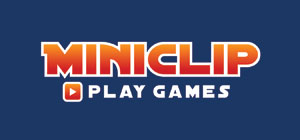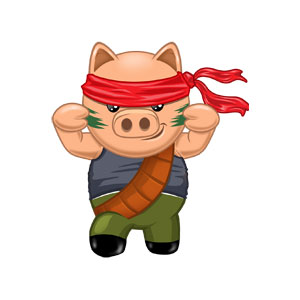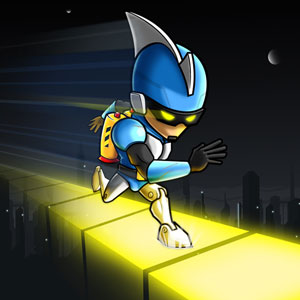Earlier this month, Miniclip.com, an online and mobile games company, entered into an exclusive agreement with Albie Hecht, CEO of Worldwide Biggies, to bring Miniclip’s top gaming properties to TV and the web. The partnership with Worldwide Biggies is part of a long-term global brand extension campaign that will leverage Miniclip’s online brand with consumers in a variety of ways. Hecht was responsible for the development and launch of Nickelodeon’s SpongeBob SquarePants, Kids’ Choice Awards, and Dora the Explorer. aNb Media spoke with Bergstresser about the company’s growth and future strategy.
Jennifer Lynch: Tell me a bit about how Miniclip got started and how has the company evolved since it was founded in 2001?
 Chris Bergstresser: Miniclip founder Rob Small and Tihan Presbie started out with the idea of doing mini clips of flash entertainment. They were experimenting through a variety of things, but it was the success of a Dancing George Bush flash game they created that really set things in motion. It was what made Miniclip shift gears and really focus on flash games. Since then, we’ve expanded to shockwave games, unity games, games in C++, and more. We now have more than 75 million gamers visiting our site every month.
Chris Bergstresser: Miniclip founder Rob Small and Tihan Presbie started out with the idea of doing mini clips of flash entertainment. They were experimenting through a variety of things, but it was the success of a Dancing George Bush flash game they created that really set things in motion. It was what made Miniclip shift gears and really focus on flash games. Since then, we’ve expanded to shockwave games, unity games, games in C++, and more. We now have more than 75 million gamers visiting our site every month.
Two years ago we launched our mobile group, which has had more than 110 million downloads across Android, iOS, and Windows Phone. We also went social about two years ago and on that side we decided to be a little more unique, creating games that operate on an open play ecosystem. So someone playing a multiplayer game such as 8 Ball Pool on Miniclip.com could play against someone on Facebook or Google+ and vise versa. That way there is always someone to play against. We’re now leveraging that on mobile next month.
J.L.: Who is Miniclip’s target audience?
C.B.: We have a broad audience but we have two sweet spots. The more casual side appeals to kids 6–13 with games such as Club Penguin. And our biggest moneymakers are the 13–25-year-olds, which is the more mid-core gamer group. They made the game RuneScape by Jagex Games really popular for us. Many people assume the gamers are all males but our gaming population is 45 percent female and 55 percent male, so it’s very close to an even 50-50 split.
J.L.: This is the first year Miniclip began delving into licensing initiatives. What is your strategy for Miniclip? Are you more focused on leveraging your IPs or leveraging the Miniclip name as a brand in the marketplace?

C.B.: Certainly overall, there is an underlying part of our strategy to build the Miniclip brand out, but because we are new to the licensing business, the low-hanging fruit for us is really our character IPs. Those are the products that people can easily connect with. Eventually, we will group it all in to a broader Miniclip play but it’s the IP right now where the value and popularity lies.
J.L.: Miniclip has been in business for 11 years so what made this the year for Miniclip to segue into licensing for its character IP?
C.B.: It’s primarily because we’ve opened all those doors to a broader audience and created that open ecosystem. We’re accessible anytime, anywhere, across any device. We’ve taken a well-executed approach to leverage Miniclip online into mobile and then leveraging mobile and online into social, and connecting all those environments together. We’re seeing a tremendous jump in popularity in some of these new games that we’ve launched, and I think for us that was a massive barrier for us to get over. We’ve evolved enough to where we feel we can go out and start managing different IP and broadening the appeal of that IP to a bigger and bigger audience because we have those open channels.
J.L.: The deal with Albie Hecht and Worldwide Biggies has the potential to be a real game changer for Miniclip. Tell me about how the deal came to fruition.
C.B.: Albie and I worked together previously on a project, [creating a series of digital games based on The Princess Bride], and he has taught me a lot over the years. I always wanted to find other ways to work with him, so when I joined Miniclip, I thought, “This might be it.” We talked for a while but then I kept saying, “It’s not the right time” or “We’re going through an evolutionary shift in the company’s strategy so let’s hold off and keep in contact.” Then, bam! We launched all these different initiatives and they were picking up momentum. I reconnected with Albie and said, “We’re ready.” He jumped on board and has really taken it and run with it. He’s been doing a fabulous job coming up with different pilot ideas, and even helping us to better understand how to broaden our IP.

J.L.: Are there any properties in particular you are focusing on and is all the content on Miniclip been made available to Hecht?
C.B.: We’ve given him a pretty broad ability to dig through our library. He’s looking at a variety of properties such as Fragger, Gravity Guy, Hambo, and more of our biggest hits on both mobile and web. He has access to all the content that belongs to Miniclip or that we have perpetual rights to, which is about 20–30 percent of our library in some way shape or form.
J.L.: When can we expect to see the initial entertainment content begin rolling out?
C.B.: In terms of timing, I know he’s working quite a bit with a couple of different big media companies, of course I can’t say whom. But, he is moving a couple of projects a long with them that we are excited about.
J.L.: What does the future hold for Miniclip?
C.B.: We know we’re in licensing for the long haul. We don’t think it’s something that’s just going to happen over night or we’re going to run out into the marketplace and say, “Look, Fragger has millions upon millions of downloads. License it!” We know it’s going to take time. We have some strong character IPs that have done phenomenally well. We have to do some more brand building with Miniclip itself to get better brand recognition from a business-to-business perspective, but fundamentally we just know this is where we need to be. So if it takes us two or three years to get there, we’re completely dedicated to it.
